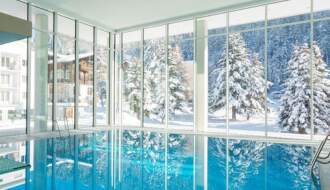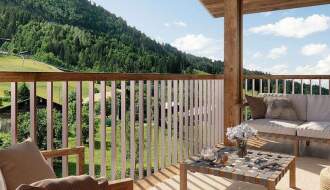Do you feel most at home on the French slopes? While there are no restrictions on overseas buyers purchasing their dream home in France, non-EU citizens do face restrictions on how long they will be able to stay in their property without a visa. Here’s what you need to know.
Many keen skiers set their sights on owning a property in France. And it’s no surprise, France boasts high-quality resorts with long, snow-sure seasons and vast stretches to play on. It is home to the largest interconnected ski area in the world, Les 3 Vallées, which encompasses the resorts of Courchevel, Val Thorens, and Méribel, totalling 600km of pistes.
Plus, if you are based in the UK, then a ski chalet in France is just a hop and a skip away. If you like the idea of owning a ski home that is super easy to get to via train, then you’ll be pleased to know that Sainte-Foy ski resort is just a twelve-minute drive to Bourg-Saint-Maurice train station.
While there are no restrictions on overseas buyers purchasing a home, there are restrictions on how long you can stay in your French ski chalet without a visa. Ski properties in French resorts are categorised into new builds and re-sales.
New build properties are often sold as leaseback properties, where the buyer leases the property back to the developer for a defined period.
Re-sale ski apartments are sold by private owners or ski resort estate agents, with the buyer owning the property freehold.
The 90-day rule:
Unless you are an EU citizen, without a visa, you can only stay in your French ski property for 90 days out of every 180. This applies for all countries in the Schengen Area: so, if you spend ten days testing out Austria’s slopes, this will count towards your overall 90 and lessen the time that you can spend in France.
Since Brexit, Britons have faced this restriction too. For those just looking to buy a second home in France, they might be able to comfortably navigate their time within the limits of the 90-day rule. However, for those looking to make alpine life in France permanent, there are long-term visa options.
Notably, if your spouse or civil partner is an EU national, then you need not abide by the 90-day rule. But, if you are not married or in a civil partnership, then you will need a visa to stay longer than 90 days.
Recently, both France and Spain, as the two countries are most popular with British property buyers looking for a new home, have called for the 90-day rule to be relaxed.
So, it could be that moving to France becomes a more straightforward process for British buyers in the future. For now, though, here’s what you need to know about staying longer in France.
Staying longer than 90 days: long-term visa options:
A VLS-TS enables third country nationals to stay in France for over three months and up to twelve months. Following on from this, you can apply for a residency permanent, which can be renewed annually. Applications are to be submitted at a French embassy or consulate in the applicant’s country.
We recommend choosing a date that you would like to arrive in France, and then applying no earlier than 90 days before and no later than 30 days before it. Excitingly, the VLS-TS grants you visa-free travel within the Schengen Area as well as France.
So, you can take trips to Italy, Austria, and Spain without it impacting how long you can stay in your French ski chalet. Additionally, there is no minimal stay requirement attached to the VLS-TS.If plans change and you find yourself spending less time in France than you envisioned, that will not impact your visa status.
Ownership Costs and Taxes
French property ownership involves two local taxes: Taxe Fonciere (annual property tax) and Taxe d’habitation (annual property tax payable each year on January 1st). Rental income from ski properties is subject to French income tax and must be declared annually.
Capital Gains Tax applies to secondary residences, with the rate tapering after 5 years of ownership. The IFI (Impôt sur la fortune Immobilière) is a real estate wealth tax applicable if the net value of taxable property exceeds €1.3 million. French succession tax is applied depending on the beneficiary's relation to the deceased/donor and the location of the asset.
Financial Considerations
Legal fees and purchase costs vary depending on whether the property is new or a re-sale, with legal costs being approximately 3% for new properties and 7% for re-sale properties.
French lenders limit mortgage repayments to less than 30% of the buyer's monthly income, and may lend up to 80% of the purchase price. Currency issues are important for international transactions, including the purchase itself and any ongoing mortgage payments.
It's advisable to use a currency broker for better exchange rates.
Buying Process and Legal Considerations
In France, a notary must be involved in the sale and purchase of property. A single notary generally represents both buyer and seller, but the buyer can choose their own and is responsible for the notary's fees.
The first legal document is the "Compromis de Vente" or a "Contrat de Reservation" for off-plan properties. A deposit of approximately 5-10% of the purchase price is paid upon signing the Compromis. There's a mandatory 10-day cooling-off period after receiving the signed Compromis.
The final contract, "Acte Authentique", is signed in front of the notary, completing the sale.
Minimum income requirement:
Moreover, the French long-term visa comes with financial requirements, whether they are obtained through work or passive income, such as from a rental property or a pension. For example, the monthly income for an individual is around €1,500.
The minimum amount increases for each dependent you have. However, it should be noted that this amount is in flux all the time, as it is reflective of France’s minimum wage. So, confidently having more than the minimum amount will put you at an advantage.
It is worth bearing in mind that if you apply for the VLS-TS as a retiree or financially independent person, then you will not be eligible to apply for a job in France.
Permanent place of residence
You must be able to demonstrate that you have a permanent place of residence for while you are in France (such as your ski chalet). It must be of an appropriate size: a family of four would not be suited to a one-bedroom apartment.
Are French language skills essential?
At this stage, it is not mandatory to speak French. However, if you were to progress on to citizenship, then that would require a French language test. Having said that, a strong grasp of French will help you to adjust smoothly to your new home. Plus, it is advisable to speak to a bilingual lawyer to help you go over any paperwork, either in regard to buying your dream home or applying for a visa.
Obtaining healthcare in France
France boasts of a high quality of healthcare, in 2021, the World Health Organisation citied France as having the best healthcare in the world. State healthcare in France is not free and is paid for by a combination of state and patient contributions.
When you apply for a long-term visa in France, you must also obtain comprehensive health insurance. Once you have been in the country for three months, you can apply to be covered by France’s universal healthcare system, Protection Universelle Maladie ‘PUMa’.
This will give you access to French healthcare on the same basis as a permanent citizen. You will need to visit your local CPAM office to start the process, it can take up to six months before you obtain your healthcare card ‘carte vitale’, which is why it is so vital to have healthcare insurance beforehand.
Additional Considerations:
Investigate financing options, including the possibility of re-mortgaging a British home to purchase property in France. Consider the resort's investment in infrastructure, which can affect property
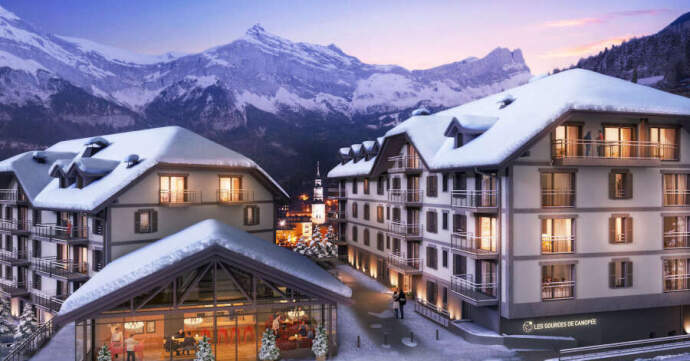
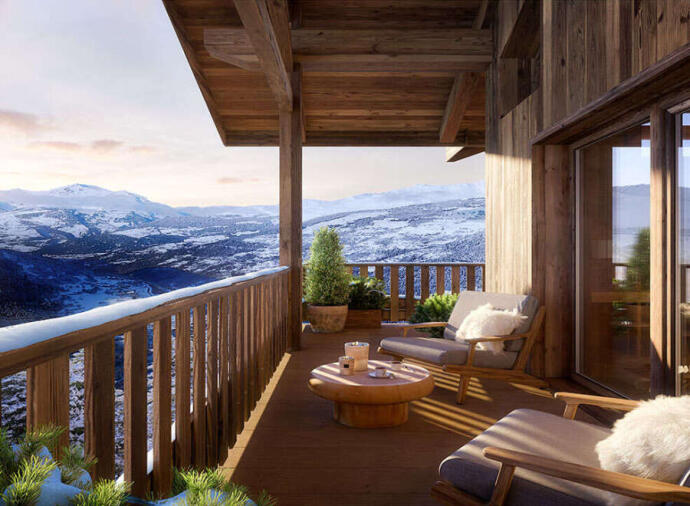
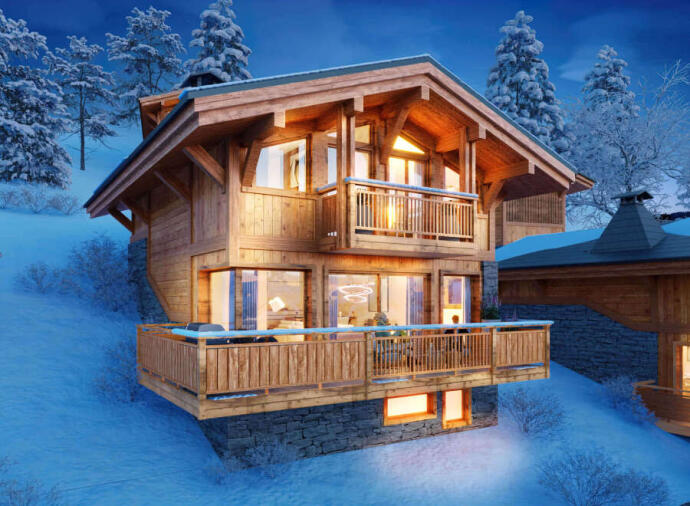
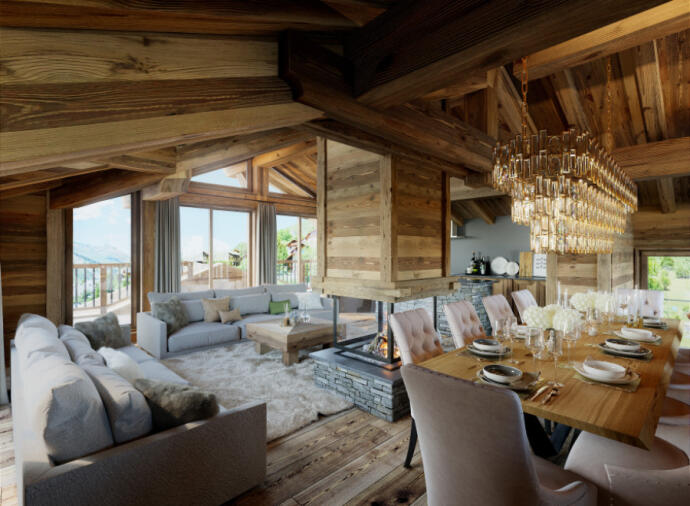
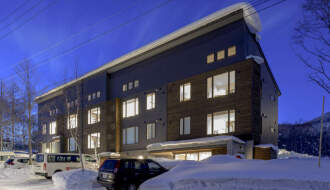
 Apr 22, 2024
Apr 22, 2024
